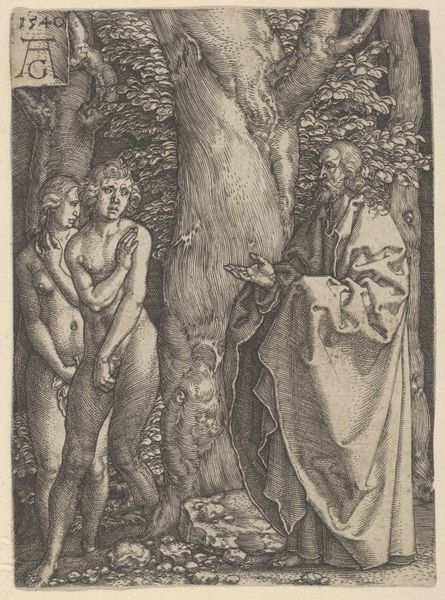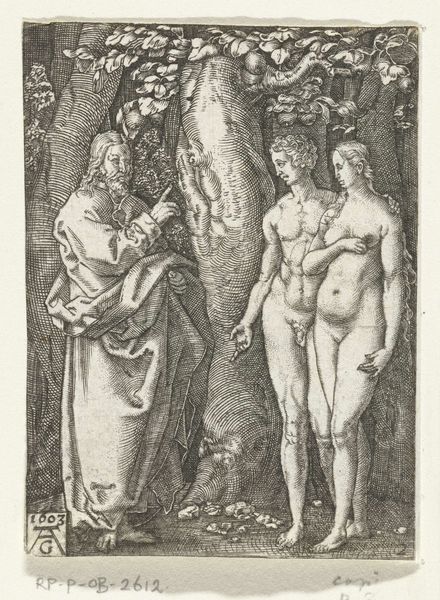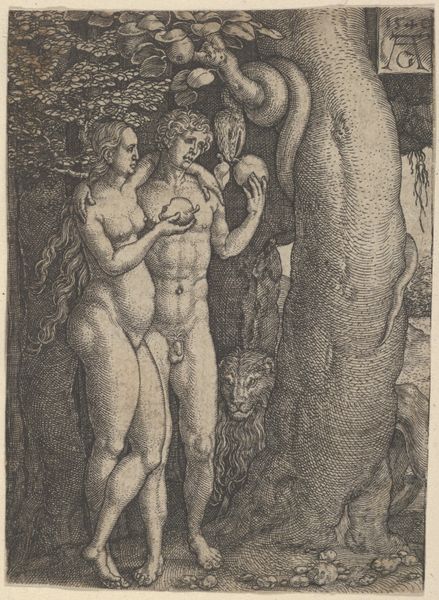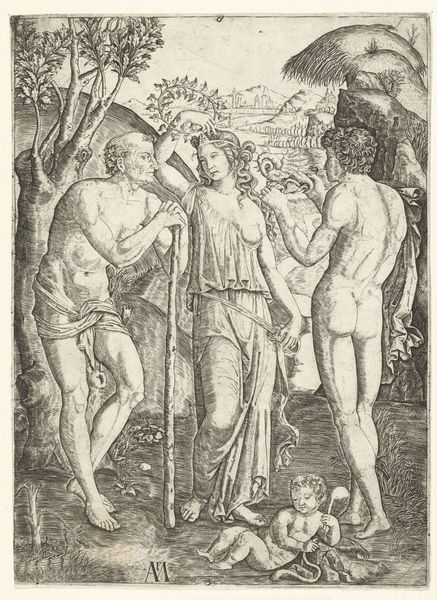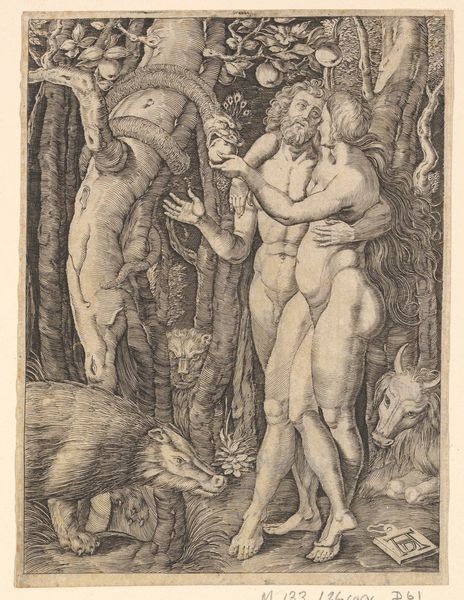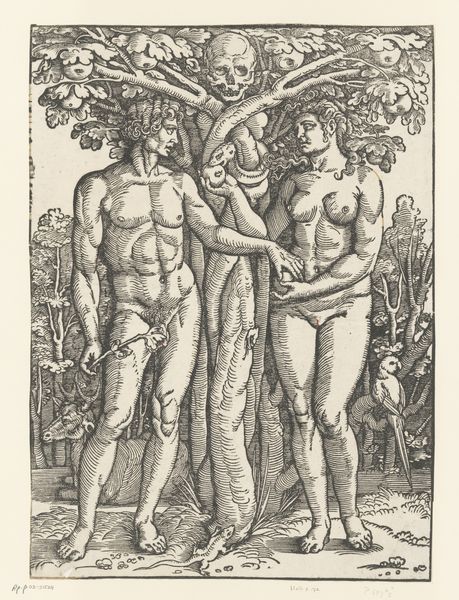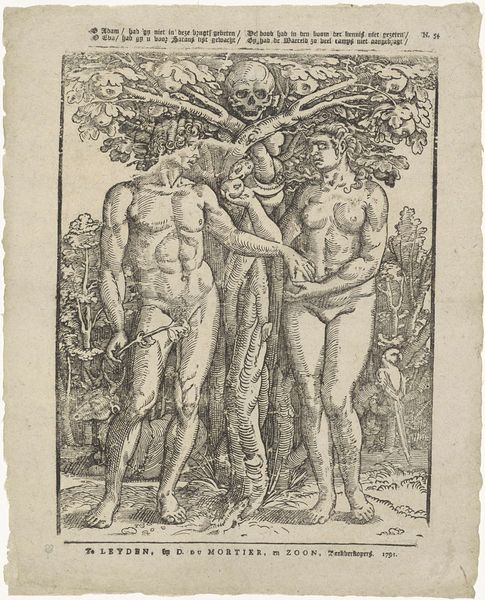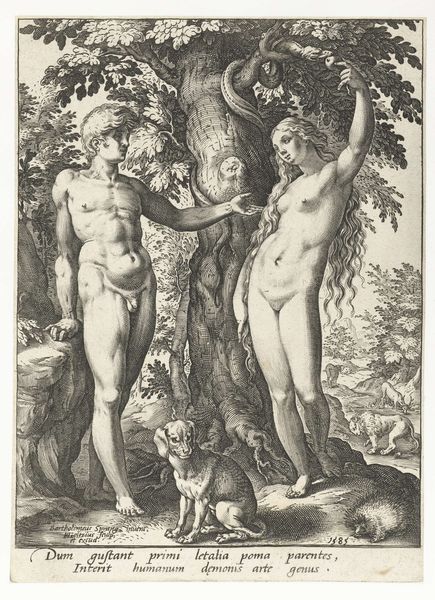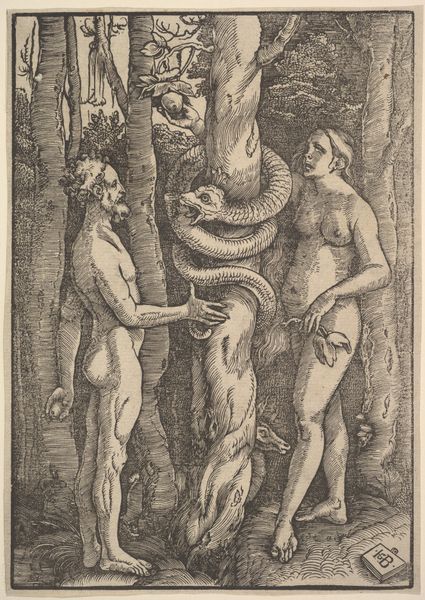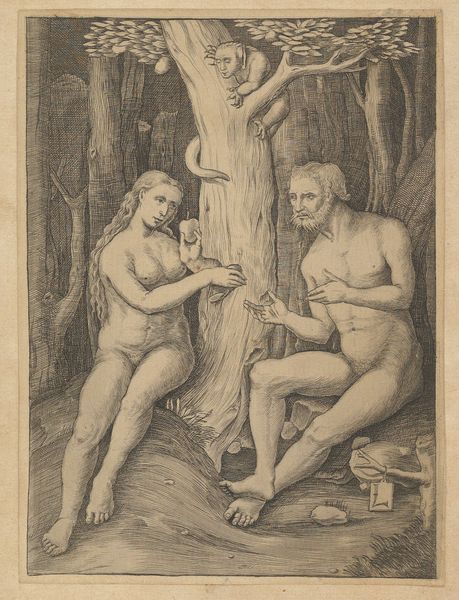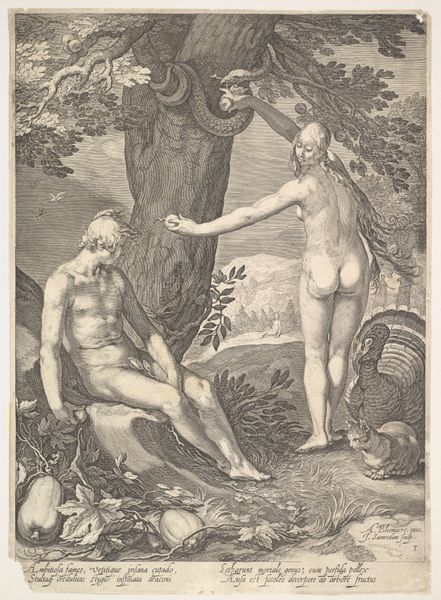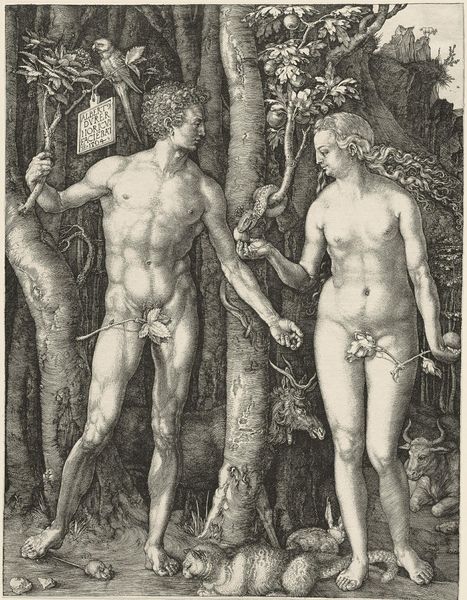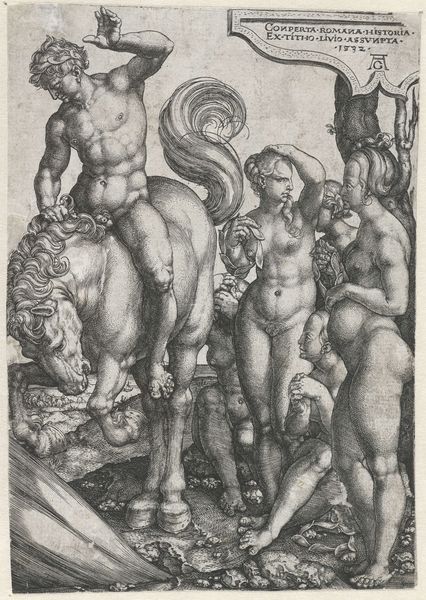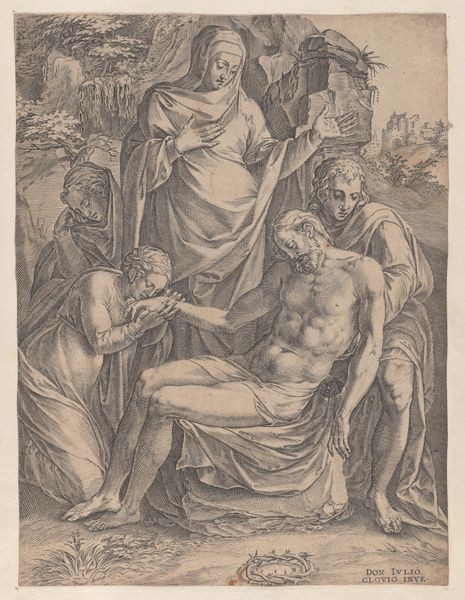
God at right forbidding the nude Adam and Eve at left to eat from the tree of knowledge in center, from 'Adam and Eve' 1540
0:00
0:00
drawing, print, engraving
#
drawing
# print
#
figuration
#
pencil drawing
#
history-painting
#
northern-renaissance
#
nude
#
engraving
Dimensions: Sheet: 3 1/2 x 2 5/8 in. (8.9 x 6.6 cm)
Copyright: Public Domain
Editor: Here we have Heinrich Aldegrever's 1540 engraving, "God at right forbidding the nude Adam and Eve at left to eat from the tree of knowledge in center," which is quite a mouthful! It strikes me as an interesting interpretation of a very familiar biblical scene. What is most striking to you? Curator: What I find compelling is how Aldegrever navigates the complexities of religious doctrine and humanist ideals within the political context of the Reformation. Consider the date, 1540. This is during a period of intense religious upheaval. The imagery of the nude Adam and Eve, alongside a forbidding God, serves not only as a moral lesson, but it invites debate regarding free will, obedience, and authority. How might its audience engage with that, in your view? Editor: Well, perhaps viewers saw this print and considered the implications of individual choices versus divine command. I guess in that time, images held a different power because widespread literacy was lower. Curator: Exactly. Engravings like these became potent tools in shaping public opinion, visually disseminating theological arguments. It questions the existing order and promotes individual interpretation of the Bible, a key tenet of the Reformation. This re-imagining democratized religious discourse. Now consider how it challenges existing visual conventions of portraying the Adam and Eve narrative? Editor: It does feel a bit different... It's less grand and more... relatable, in a strange way? God looks almost like a common scholar. I see now that the historical context really shaped the message and reception of this artwork. Thank you. Curator: Indeed. Studying art this way allows us to see it not as an isolated creation, but as part of larger, dynamic societal dialogues. Considering social impact makes looking at art very revealing.
Comments
No comments
Be the first to comment and join the conversation on the ultimate creative platform.
